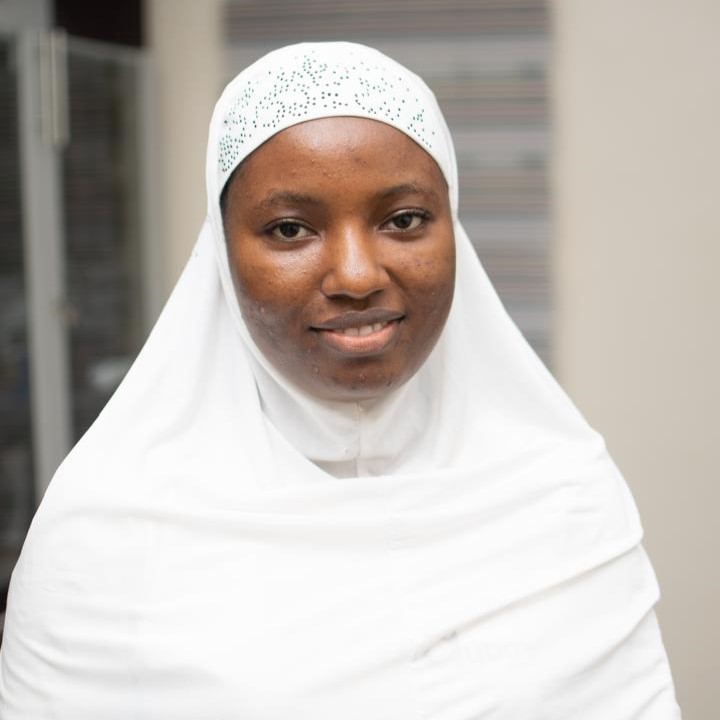Living with sickle cell anaemia is like waking up every day in a body you have to negotiate with.”
That is how Oluwakemi Oguntimehin, founder of the Ignite Sickle Cell Initiative and a survivor of the disease, described the reality of living with sickle cell anemia.
As the world marks World Sickle Cell Day on 19 June, Ms Oguntimehin’s story cuts through the silence and stigma.
“I have lived through excruciating pain, countless hospital visits, emotional burnout, and financial pressure just to stay alive. But this journey also gave me the purpose to start sickle cell advocacy,” she told DevReporting.
Her experience, she noted, is a reflection of many others across Nigeria who face not only the physical toll of the disease but also systemic neglect, ignorance, and mental health challenges.
“You can be fine in the morning and in a full-blown crisis by night. Sometimes you are admitted to a hospital where the doctor doesn’t even understand sickle cell or the complications that can occur, let alone how to properly manage your pain. The isolation, anxiety, and depression are real, but often ignored.
“However, listening to my body and prioritising rest as well as practicing hydration, balanced nutrition, warmth, and emotional wellness are all essential. I use prescribed medications like folic acid, multivitamins, and pain meds when necessary and during crises, heat therapy and relaxation techniques help a lot. But what works for me might not work for everyone, management is personal and should be tailored, “she revealed.
Nigeria bears the global weight
World Sickle Cell Day, officially adopted by the United Nations General Assembly, is observed annually to increase awareness of sickle cell disease and related blood disorders. The burden remains staggering in Nigeria.
The theme for the World Sickle Cell Day 2025 is ‘Global Action, Local Impact: Empowering Communities for Effective Self-Advocacy.’
The World Health Organisation (WHO) data shows that approximately 5 per cent of the world’s population are healthy carriers of a gene for sickle-cell disease or thalassaemia, noting that the percentage of people who are carriers of the gene is as high as 25 per cent in some regions.
According to data, about 400,000 babies are born yearly with sickle cell disease (SCD) globally with over 300,000 born in sub-Saharan Africa. Nigeria alone accounts for 150,000 SCD newborns yearly. The scourge is expected to rise by 2050. Without early intervention, 70 to 90 per cent of these children may not survive beyond age five.
While Thalassaemias are the most common in Asia, the Mediterranean basin, and the Middle East, sickle-cell disease predominates in Africa.
Sickle cell anaemia is one of a group of inherited disorders known as sickle cell disease. It affects the shape of red blood cells, which carry oxygen to all parts of the body.
Facts by the African Health Organisation (AHO) shows that sickle cell anaemia affects millions around the world, adding that it is hereditary and not contagious.
It further noted that there is no definitive cure for patients with sickle cell anaemia, but it can be avoided by pre-marital screening. Additionally, like healthy persons, a patient with sickle cell trait does not show symptoms.
Preventing sickle cell starts in classroom – Expert
At a special edition of the ‘Experts Speak Series’, a programme of the Centre for Information and Public Relations (CIPR) at the Lagos State University (LASU), an expert called for urgent reforms, including incorporating genotype testing across primary, secondary and tertiary institutions.
Speaking at the event themed ‘Access to New Therapies – Hope or Hype’, the head of the Department of Haematology and Blood Transfusion at LASU College of Medicine (LASUCOM), Akinsegun Akinbami, a professor, stressed the need for proactive screening and awareness.
According to him, Nigeria is the hub of sickle cell in the world, having an estimated over 2 million people affected.
“Sickle cell awareness day should not just be a date but must be a call to reduce the crisis. Everyone needs to know their genotype,” he said.
He cautioned that individuals with AS genotype should avoid marrying fellow carriers (AS, AC or SC), recommending only compatible pairings with AA to prevent the transmission of sickle cell disease to offspring.
Mr Akinbami further emphasised the importance of mandatory genotype education in schools. “If genotype testing is part of the school system, it will significantly reduce the burden of sickle cell in the next generation.”
Treatment options
Mr Akinbami lamented that despite the heavy toll, the pace of medical advancement has been slow, stating that only three to four drugs (Hydroxyurea, L-glutamine, and Crizanlizumab) have been developed since the disease was first reported in 1910.
“Hydroxyurea is a common drug used in Nigeria. There are other drugs but because of cost, they are not affordable to ordinary Nigerians. We have L-glutamine, and Crizanlizumab, which are new drugs that have just been discovered.”
The professor further revealed that beyond drug therapy, he cited bone marrow transplant and gene therapy as promising curative options. He also highlighted emerging prenatal technologies that could allow couples with incompatible genotypes to still have healthy children but noted that these remain largely inaccessible to the average Nigerian.
“Apart from drugs, sickle cells can be cured through bone marrow transplant for those that can afford it and the gene therapy. They are new methods and the one available in Nigeria is not affordable. There is also a technology that makes AS to AS marriage work which involves prenatal diagnosis to change the infant genotype before delivery.”
Another successful bone marrow transplant in Nigeria
The Lagos University Teaching Hospital (LUTH) has announced the successful completion of another cycle of bone marrow transplant, following the first procedure carried out in September 2024.
A Paediatric Haematologist at LUTH, Adeseye Akinsete, disclosed this on Thursday in an interview with the News Agency of Nigeria (NAN), adding that preparations are underway for a third cycle scheduled for August.
He explained that LUTH successfully completed its first bone marrow transplant in August 2024, offering new hope through curative therapies to patients suffering from the disease.
According to Mr Akinsete, the theme of this year’s World Sickle Cell Day highlights the need to amplify the voices of those affected by the disease, directly or indirectly. He added that the procedure performed on the first set of patients, reflects the growing ability of local healthcare facilities to treat complex conditions like sickle cell disease.
“This achievement marked a turning point for Nigeria, a country with the highest burden of sickle cell disease in the world, where an estimated 150,000 children are born with the condition each year.”
Personalised care
Ms Oguntimehin, who advocates holistic wellness, shared her own approach to managing the disease.
“Hydration, balanced nutrition, warmth, and emotional stability are essential. I take prescribed medications like folic acid, pain meds when necessary, and I use heat therapy during crises. But every case is unique, management must be personal.”
She also listed support networks including the Sickle Cell Foundation, Sickle Cell Advocacy Management Initiative, Ignite Sickle Cell Initiative, Sickle Cell Health Initiative and hospitals offering genetic counselling such as LASUTH and University College Hospital, Ibadan among others.
Way forward
Mr Akinbami urged the Nigerian government and insurance providers to become more actively involved in sickle cell care, to increase the life expectancy of sickle cell sufferers in Nigeria. “We must strengthen our healthcare system, expand access to drugs and therapies, and support families battling this disease.
For Ms Oguntimehin and thousands like her, the World Sickle Cell Day is more than a date, it is a reminder. “We are still fighting for equity, for dignity and for survival.”
1,000 persons to get free health insurance
To mark this year’s World Sickle Cell Day, Nigerian hip hop musician, Adekunle Gold announced the launch of a new programme by the Adekunle Gold Foundation, named ‘5 Star Care.’
In a video posted on his official X (formerly Twitter) account, the artist explained that 5 Star Care is a free health insurance scheme for 1,000 individuals living with sickle cell anaemia in Nigeria.
According to him, the programme is being implemented in collaboration with the Lagos State Ministry of Health and the Sickle Cell Advocacy and Management Initiative (SAMI).
“We believe that every life deserves five star care, irrespective of where you come from, what you earn, or what you are going through,” he said.
Mr Gold noted that the initiative aims to ease the financial burden of managing sickle cell anaemia.
“The 5 Star Care isn’t just an initiative, but a promise to make sure that sickle cell warriors are seen, heard, and cared for. Our goal is to ease the financial burden of managing sickle cell and help more people get the quality care they deserve without stress.”
He encouraged those affected to visit www.adekunlegoldfoundation.com/5starcare to register.


